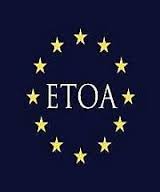
ETOA Tells European Parliament: Brexit Needs a Deus ex Machina
On Wednesday 25th April, Tom Jenkins, CEO, ETOA, the European tourism association, gave evidence to the European Parliament’s Committee on Transport and Tourism.
In the opening statement to the hearing on the impact of Brexit, he likened Brexit to a Chimera, the mythical hybrid animal that has now come to symbolise a fantastical idea.
Brexit was such an idea. It is already having a damaging impact on people working in the tourism industry in the EU. In the UK, many businesses are already struggling to recruit and retain workers from Continental Europe as the appeal of coming to work in the UK was diminishing. That is problematic for UK-based companies and is a constraint on the careers of young people living in the EU and the UK.
There is also a complication for UK companies using guides and representatives in Europe: their employment status (and so their livelihoods) are now in jeopardy.
One technical issue is the application of VAT. Under the current regime, known as the Tour Operators Margin Scheme or TOMS, companies based in the EU do not need to register and account for VAT in each different country in which they operate. It is a provision that saves companies a great deal of financial administration. Tom Jenkins argued that it should continue to be available post Brexit to UK-based companies bringing visitors to the EU and EU-based companies bringing visitors to the UK.
Tom Jenkins said: “Our members sell Europe in general, and in, in doing so, sell the European Service Economy. Anything that adds administrative burdens and costs is harmful. The less the UK is associated with Europe, the less is the appeal of Europe and vice versa. The four freedoms (of goods, services, labour and capital) are important for tourism businesses. We can meet demand wherever it occurs and source product wherever it exists. This widens the scope for business and enriches the choice for consumers. Nobody wants to have to abide by two different sets of rules. If the easiest way to trade is to establish offices in both the UK and Continental Europe, companies will do that. This spells an increase in administrative burden.”
The current EU rules are far from perfect. The latest changes to the Package Travel Directive are welcome but they are already obsolete. “Discussions need to begin immediately on PTD3,” urged Jenkins.
In concluding, Tom Jenkins issued an appeal to the Brexit negotiators on both sides: “Do everything in your power to maintain the status quo and come to that outcome quickly. It is in both parties’ self-interest. National self-interest may be the Deus ex Machina that this situation needs.”
